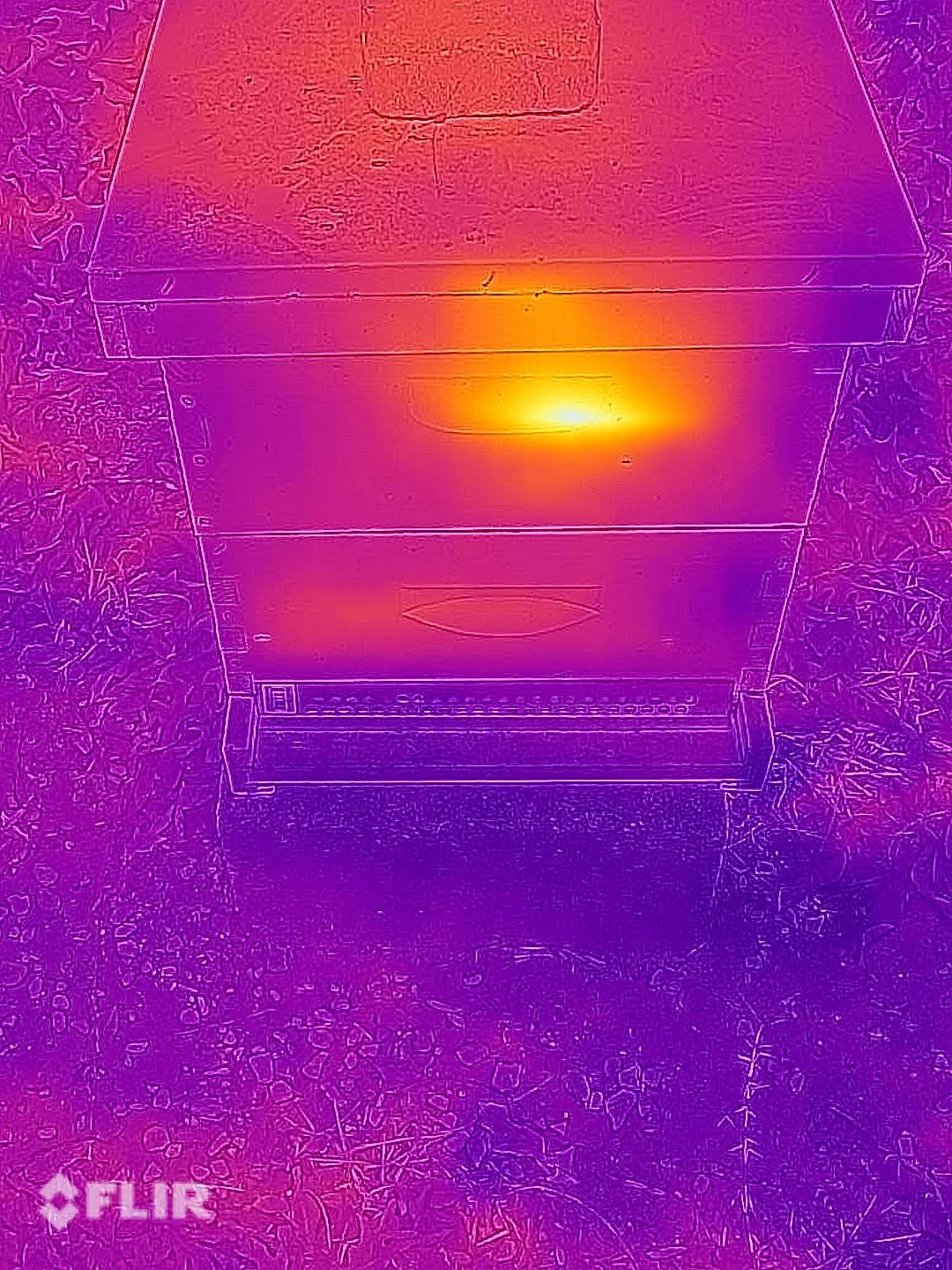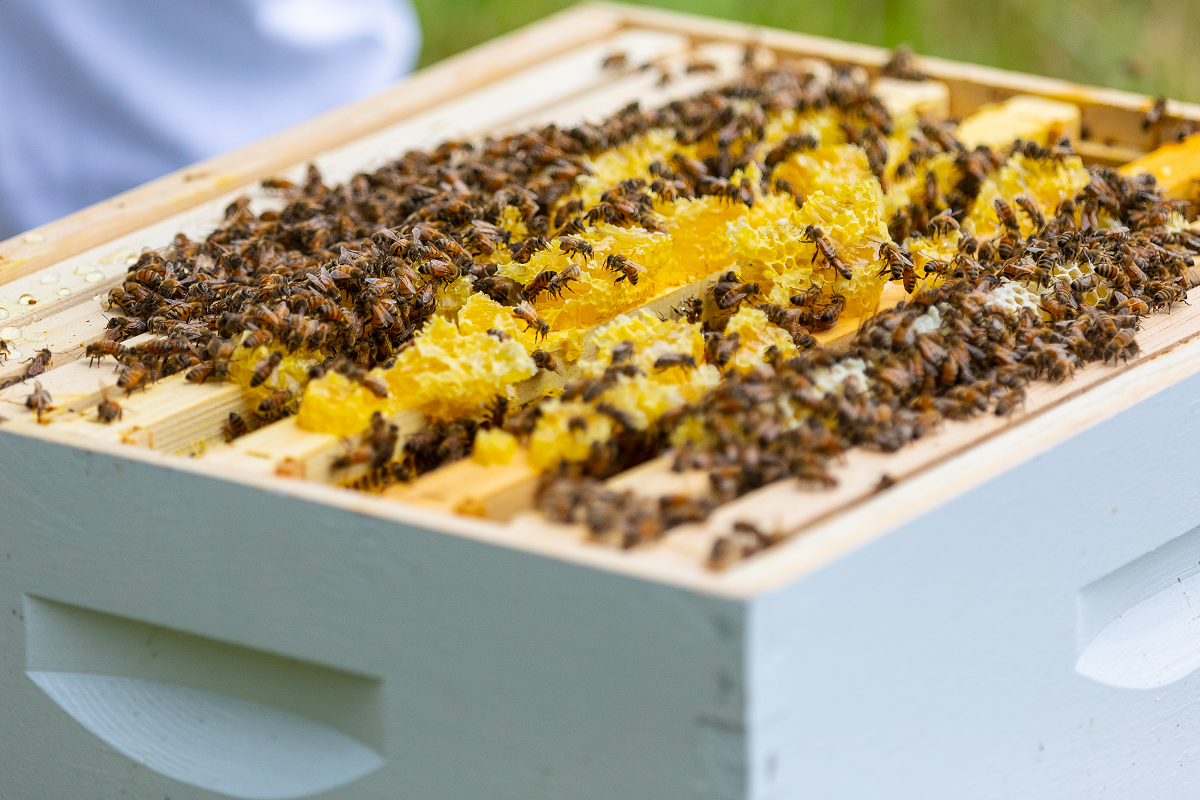Why do Beekeepers Feed Bees Sugar Water? Isn’t that Cheating?
You may have heard or read out there that feeding sugar water to bees is bad, or you may have heard a beekeeper mentioning feeding sugar water to their bees. What is the deal with this? Aren’t bees supposed to feed themselves with flowers?
First – Let’s talk nectar. Here is the definition, snipped from google:
The plant makes nectar for the sole purpose of attracting our bee friends – so that our bee friends will help the plant reproduce. Each plant has unique nectar, with lots of different vitamins, minerals, volatile organic compounds (this is why irises don’t smell like roses), etc. They have different types of sugars (sucrose, fructose, glucose, etc) in different ratios with water, which is usually approximately 50% of the nectar. Sucrose is often the sugar present in the highest percentage.
So in order for bees to make honey, there must be nectar. In order for a plant to provide nectar, it needs a flower and it needs water. Honey is the bees’ source of carbohydrates. It’s what fuels their bodies.
We keep bees in central Virginia. Our weather patterns are such that we have the greatest percentage of blooms in the spring, through the summer, and very few blooms in the winter. We typically have a very hot dry end of summer, which corresponds to a sudden decline in the types and number of blooms.
Check out this amazing visualization of one year of blooms at Monticello in Charlottesville, VA. As you can see, there is a steep decline in blooms starting in late summer, and they don’t return until late winter. Almost 6 months of nearly nothing. But you’ll also notice an absolute abundance for the other 6 months (as long as we get rain). This animation was created and posted by Info We Trust, a data adventure in SanFran.
Now let’s talk about the bees’ eating habits. Unlike most pollinators, honey bees live a perennial life. They stay alive all winter and do not “hibernate” in the same way as other insects. For example: in a bumble bee colony, only the queen survives the winter and she does so by digging into the earth and sleeping through the winter. All her workers die. In a honey bee hive, all the bees stay awake and keep the queen warm by eating honey and hunkering down around her in a hot ball. The image below is a thermal image of a beehive in winter – that hot spot is all the cute warm bees eating honey and staying cozy.
The bees need honey to stay warm. They need to have collected enough honey in the “pantry” during those six months of bloom to feed them during the six months with no blooms. They need 30-50 Lbs per winter depending on their population and the weather. On warm VA winter days, they’ll come out and stretch their legs quickly and go to the bathroom, only to return to hunker down again. Bees are cold blooded. They have no mechanism to generate heat like we do. They have to move to stay warm. They eat the honey to burn carbohydrates (those sugars we talked about) in order to move their bodies and muscles – kinetic energy. They also need honey to burn carbohydrates to fly in the heat of summer.
If the bees do not have 30 Lbs of honey going into winter, they’ll run out of honey before winter is over, starve, and freeze.
We don’t like that.
If a hive is below 50 Lbs of honey, we feed sugar water in the fall to beef them up. We use white granulated sugar.
Why not feed organic/raw sugar? Remember, bees don’t eat sugar cane or sugar beets. They eat nectar. Nectar is a complex mix of things, but the most common carbohydrate in nectar is often sucrose. We cannot replicate nature’s complex nectar recipe. But we can provide sucrose very easily. The bees do not naturally eat the other compounds in “raw sugar” so we avoid that. As unusual as it sounds – the more processed product taking sugar cane/beets all the way down to sucrose (the only ingredient in white sugar) is the most natural choice we can make.
Why not feed honey? The bees are short on honey, why don’t we just give them honey? Two reasons: honey is expensive, and honey can carry bee diseases. If we buy a big cheap barrel of honey from who knows where in order to affordably feed our bees with honey, we have no idea if the bee hives it came from were sick. Bee diseases do not impact the quality of the honey from a human consumption perspective. So if a beekeeper lost their entire fleet to a disease, there would be no issue with harvesting the remaining honey for human consumption. But if I buy that honey and feed it to my bees, there could be fungal and bacterial spores that are harmless to humans but now my bees are sick. Better safe than sorry.
But doesn’t the sugar water impact the honey?
As long as your beekeeper knows what they’re doing – no. Remember the flower chart from Info We Trust? Beekeepers do not feed sugar water to their production hives until after mid-sumer. They typically pull the honey off the hive before they start feeding. The honey they pull off is all new honey that the beekeeper KNOWS was generated by the bees that spring – because when we add new hive boxes to the bees in March, there’s no way it could contain sugar water that we fed the bees last October, so all the honey the bees put in that box from March – June is real honey from real flowers. Bees often naturally make more honey than they truly require – which is the only reason honey is a thing you can eat.
Every beekeeper knows that real honey is better for our bees than sugar water – remember the vitamins and minerals. So all beekeepers strive to have enough honey on the hive that they do not need to feed sugar water. For example, we do not feed all of our hives every year. We only feed the hives that need it. But in order to reach production goals and keep the livestock alive, they must occasionally be supplemented with sugar water – especially in times of drought. It’s the best way for us to be able to share some of the honey the bees make while simultaneously guaranteeing we aren’t contributing to them starving. It would be very rude of us to steal their honey in June and then say “good luck on the food thing – supposed to be a dry summer.”
Buy local honey from an experienced beekeeper – and don’t be upset if they feed sugar water – we do this to keep real honey in your pantry and keep our bees well fed.






